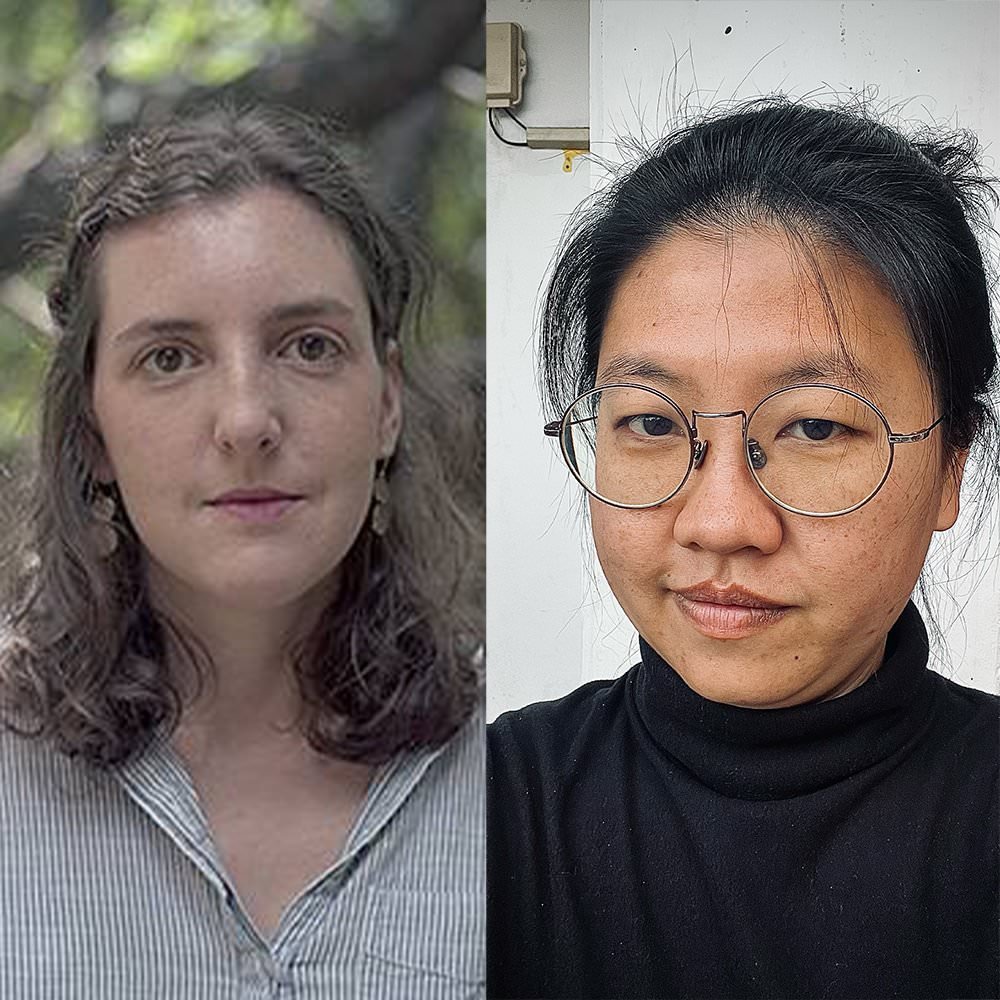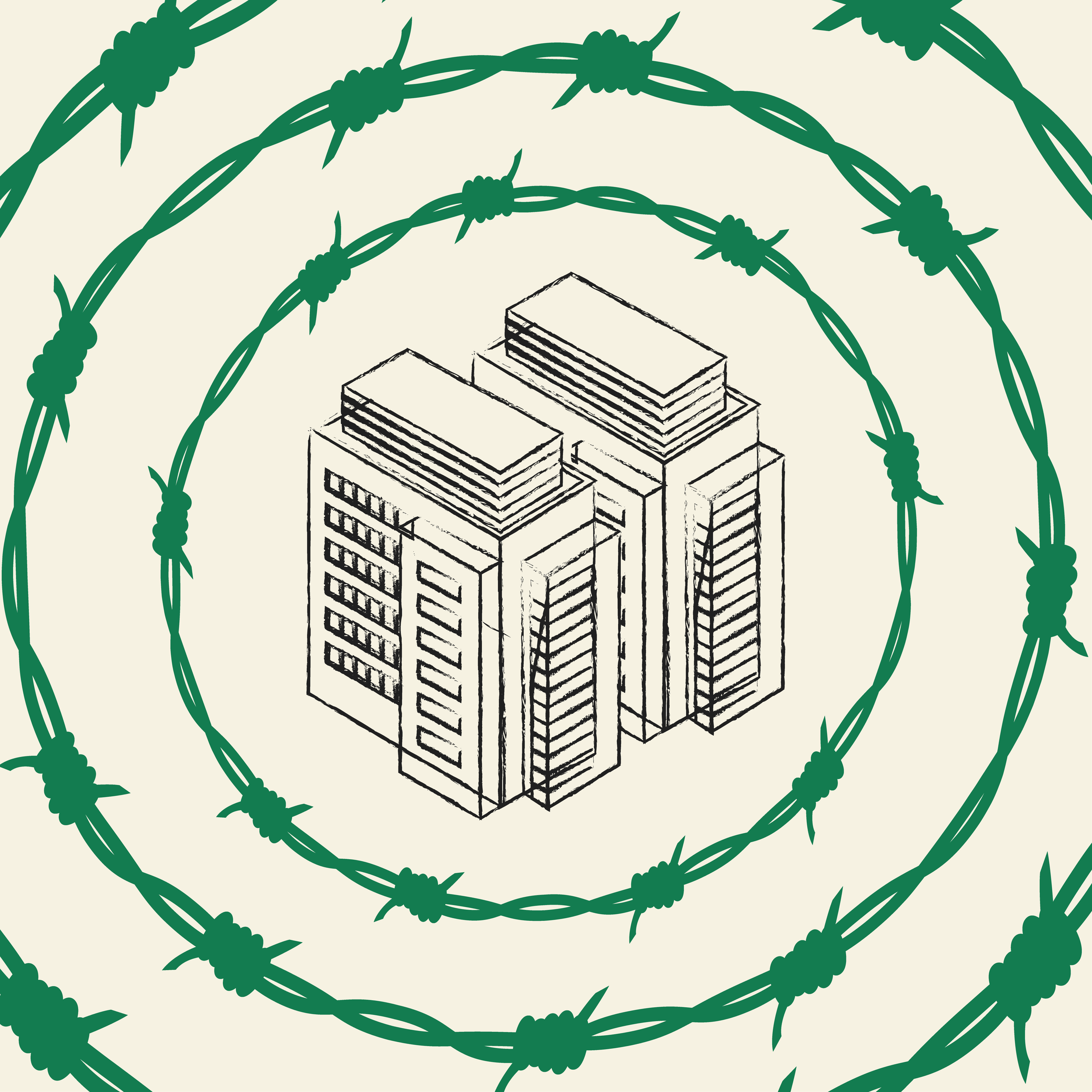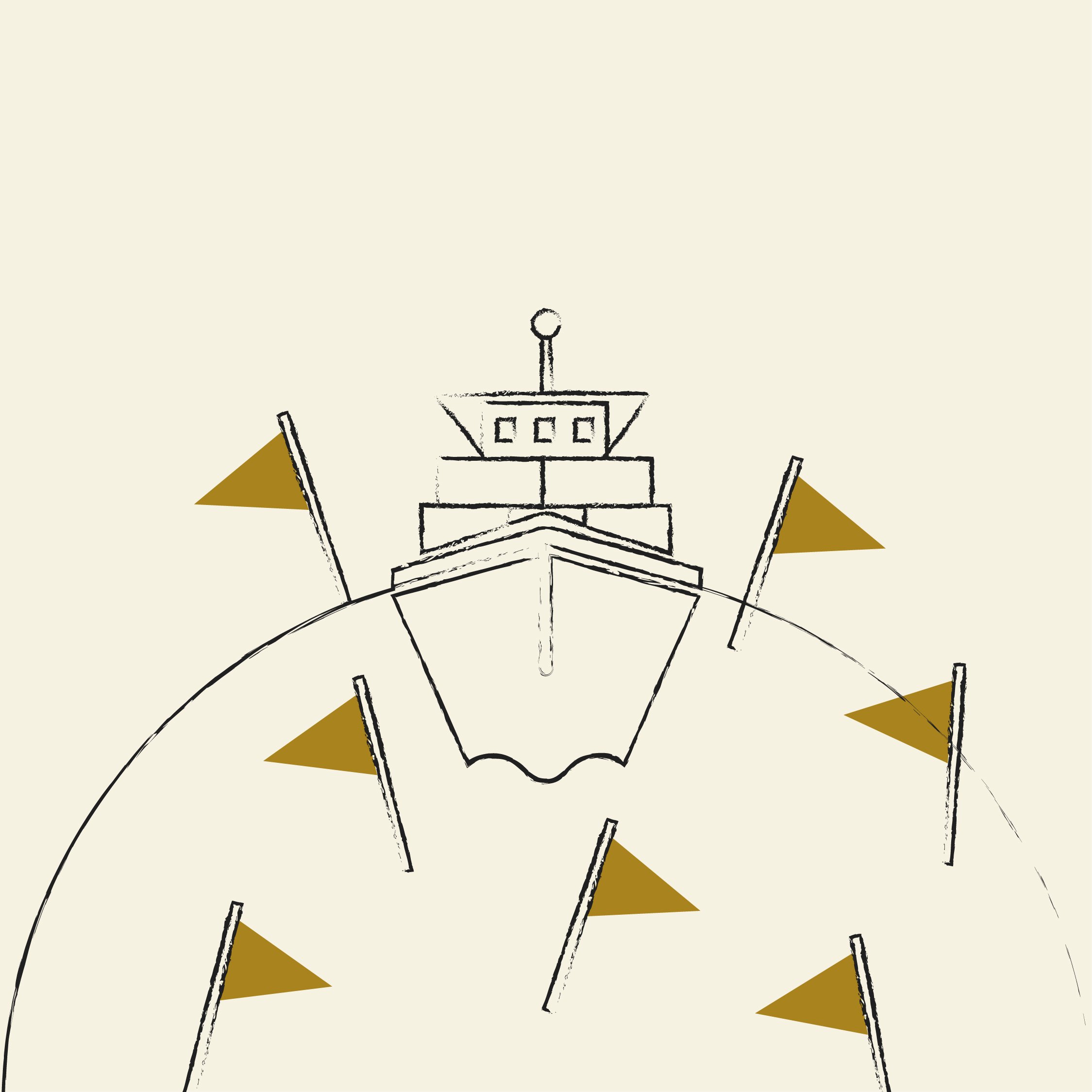Abby Seiff and Sokummono Khan on Collaborative Reporting
JUNE 22, 2023
The Reporter’s Notebook is our monthly interview series with Dial contributors. To receive these conversations directly in your inbox, sign up for our newsletter.
✺
Abby Seiff is a writer and editor whose work has appeared in The New York Times, Al Jazeera, Mekong Review, and elsewhere. She is the author of Troubling the Water: A Dying Lake and a Vanishing World in Cambodia. Sokummono Khan has been a journalist since 2016. She films and writes long-form stories on health, politics, inequality and social justice, culture and education for Voice of America Khmer Service. Their reporting on the danger of microloans was published in our Debt issue.
Seiff and Khan met on a reporting trip in the Tonle Sap lake. Their investigation into the microfinance industry in Cambodia reveals that microloans are helping banks grow wealthier and leaving the poor deeper in debt, and was published in our Debt issue.
Seiff and Khan spoke with Dial intern Eva Kerins about collaborative reporting, building trust with interviewees, and the role of banks in lifting people out of poverty. This interview has been edited for clarity.
THE DIAL: What drew your interest to the subject of microloans in Cambodia? When did you first begin researching the subject?
Abby Seiff: For a lot of us who might not be familiar with microfinance, we may only understand it as a kind of empowering, charitable thing. That was certainly how I viewed microfinance when I first moved to Phnom Penh to work at the Cambodia Daily. I was surprised when I started reading and writing articles about its negative impacts.
Years later, I began reporting for what would later become my book, Troubling the Water, about how fishing families are coping with the damages to Tonle Sap lake. It quickly became clear to me you can’t write about the lake without writing about microfinance: every person I spoke with held microfinance debt. Last summer, I went back to Cambodia for the first time in a few years and was chatting with someone who researches microfinance in the country. He described it as “a wealth transfer from the poor to the rich.” That phrase helped me zoom out from just looking at the struggles of these fishing families to understanding the actual business of microfinance. In hindsight, it was obvious: follow the money!
Sokummono Khan: When I started reporting and writing regular features about healthcare issues in Cambodia, in 2018, I learned that the biggest struggle for everyone from middle-income to poor families was how to pay for treatment. People call kidney disease, for example, the “sell everything you have illness.” Some sell their properties, others borrow from their friends and relatives. That is when microloans get involved. Many reporters have heard sources tell us of how debts pull them back from the future they are trying to build for their kids. The more we delve into this subject, the greater the sense of urgency to push for a rethinking of the system.
THE DIAL: How did the two of you go about reporting the piece as a collaborative project? What was your process like?
AS: During my Cambodia trip last summer, I wanted to get out onto the lake at least once — just to see what things were looking like these days. Mono, who had done her own Tonle Sap lake reporting, kindly agreed to come along as a translator. Since I’d recently had that conversation about microloans operating as a wealth transfer, I thought we might as well ask people about their loans while we were out there. She and I bounced around the kernel of that idea and got a slight sense of the situation. A few months later, I pitched The Dial, using the story of one of the people we’d spoken to over the summer and some of my own research. But I knew this one person’s experience wasn’t nearly enough to capture the human impact. I reached out to Mono to see if she’d be interested in co-reporting: she could find more people in Cambodia struggling with debt and I would talk to the researchers and banks and so on. To my mind, the reporting Mono did really made the article what it was.
SK: When Abby contacted me about her reporting plan in Tonle Sap lake, I had just come back from reporting in Pursat and Kampong Chhnang, provinces along the lake, for stories on the 2022 local election. I was looking into fishermens’ livelihood as the country recovered from COVID-19. When we began writing, and needed more sources, I went back to local chiefs to ask for contacts. They can easily name villagers who are in debt. One simply answered, “everyone in this village.” But to get actual contacts was hard. A local politician had to ride her motorbike in the evening to collect a few for me, and I can’t thank her enough.
THE DIAL: The banks and money lenders offering microloans use terms like “financial inclusion” to describe these kinds of financial tools. How does this idea of inclusion affect developing countries like Cambodia?
SK: Before “inclusion” there should be accessibility and straightforward ownership. Farmers should be able to protect their land from others. Children in rural areas should not be forced to leave school due to their parents’ financial issues. “Financial inclusion” means people being empowered financially to contribute to society’s development. However, what power can we observe when land is taken away and children’s education remains precarious due to their parents’ financial issues?
THE DIAL: How do you build trust with your interviewees, especially when discussing issues as personal as economic insecurity?
AS: It’s something I’m hyper aware of as the “foreign” correspondent: so much of that trust-building comes from the deft work by the person who is actually speaking the same language as the interviewee. It drives me crazy how infrequently interpreters are credited on articles, let alone stringers and local reporters, when so much of the trust-building is coming through those intimate interviews.
SK: I try not to convince interviewees that their story is so important that they must talk to the media. They may fear potential repercussions or intimidation. But they want their concerns to be heard by the government and policy makers. They want issues around debt to be improved so that they and others can be better off. We gave them the option to remain anonymous. In our conversations, I allow for lots of pauses, and share facts and figures and listen for the sources to say if they think it is true or not in their case.
THE DIAL: You write that the microloan industry “is working exactly as it’s been set up to” —that this is a system designed to be broken, and to exploit vulnerable communities. How have you observed the microloan industry gaining traction in Cambodia and beyond?
AS: I don’t think the industry is designed, per se, to exploit the vulnerable. It’s designed to make money, and people paying extremely high interest rates on loans are bound to make money for others. But I think the way it’s operating makes abuse or exploitation fairly inevitable. I think the Cambodian government has recognized, to some extent, the issues with microfinance — hence the 18 percent interest rate cap it issued in 2017. (Before that the rate could be as high as 30 percent, and if you look at reporting from the time, industry experts were insisting this would result in the microfinance industry no longer being able to issue loans to the poor and forcing them into the hands of informal lenders, which of course is not what happened!) But rights groups like the Cambodian League for the Promotion and Defense of Human Rights, which study the impacts of these loans on the poor, note that much more could and should be done, including stopping using land as collateral, lowering interest rates, better enforcement of existing laws, and so on. Still, in countries where there have been reforms, banks have managed to continue to do just fine, so it doesn’t seem impossible that both interests could be served.
THE DIAL: In your interview with Lonh Saly, he says “If I could use all my twenty-four hours per day and didn’t have to sleep, I would use them all just to work.” This seems to comment on an increasingly global emphasis on productivity as purpose, even at the expense of one’s quality of life. What did your reporting reveal about labor conditions and exploitation in the region?
SK: It is akin to a Cambodian teaching that emphasizes emotional self-support in times of struggle, stating that “self is its own refuge.” The vulnerability of Saly and other Cambodian farmers, fishers, and workers may make them susceptible to exploitation, especially because they are categorized in the informal sector, where there is limited protection for them. This is an issue worth emphasizing.
THE DIAL: How do you view the nature of debt differently, after speaking with your interviewees?
AS: This is a Cambodia story, but it’s also a global story. I’m from the US — it’s a very wealthy country and still we have so many people in the poor and middle class struggling with debt. Not just mortgages and car loans and student loans, but credit card debt, medical debt, and so on. And the figures are continually rising. More than half of Americans surveyed by the Federal Reserve reported that they wouldn’t be able to cover an unexpected $400 expense. There is something almost unfathomable about the fact that most people cannot survive on what they earn and can’t get by without taking out loans. We have such extreme income inequality and we have some people getting very, very wealthy off of that situation.
SK: Over the course of reporting, I observed that most sources I talked to are very hardworking people who have no time, and no luxuries, to reward themselves with holidays longer than the national holidays (commonly three days). As hardworking as they are, they are in a downward spiral: they would not be able to repay debt if they just followed the process with commitment.
Yet, in just about a decade, debt, which used to be a culturally sensitive issue, a taboo no one wanted to talk about, is more easily discussed. But people cannot find solace in that, even if they know they are not alone.
✺ Interview conducted by The Dial in conjunction with “Issue 5: Debt”
ABBY SEIFF is a writer and editor whose work has appeared in The New York Times, Al Jazeera, Mekong Review, and elsewhere. She is the author of Troubling the Water: A Dying Lake and a Vanishing World in Cambodia.
SOKUMMONO KHAN has been a journalist since 2016. She films and writes long-form stories on health, politics, inequality and social justice, culture and education for Voice of America Khmer Service.
EVA KERINS is a writer pursuing a career in literary publishing and journalism. She recently completed her B.A. in English at the University of California, Berkeley, with a special emphasis in postcolonial world literature and classical studies. Her work has been recognized in Matchbox Magazine and You Might Need to Hear This Literary Magazine, and she has received the SURF Fellowship Award and recognition in the Dickinson Critical Institute for the Emily Dickinson International Society.





